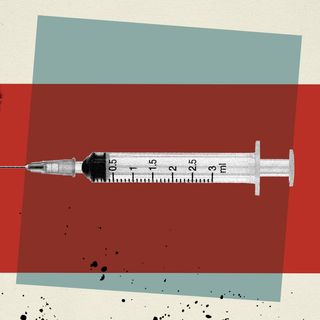
Why Some Covid19 Infections Last Weeks, Months, and Others Last Only Days
Theories to explain ‘long covid’ range from scarred lung tissue to damaged immune systems.

Covid19 symptoms that last for weeks, or even months, are increasingly reported across the globe — including by prominent sportspersons and other celebrities. Currently referred to as ‘long Covid’ or ‘post-Covid syndrome,’ an extended coronavirus illness is so prevalent it has led to the creation of online support groups. But why is this happening?
Long Covid is still being studied, but so far it appears either mild or severe cases can cause lingering symptoms even after a person has tested negative for the virus. The most common symptoms of long Covid appear to be fatigue, cough, shortness of breath, headaches, and joint pains — with fatigue being the most widely reported among patients. Long Covid can affect people of all ages, including children and those without any underlying chronic medical conditions, notes one study, which is awaiting peer-review, but risk of extended illness appears to increase with age. The study also found women are twice as likely to experience Covid19 symptoms that last longer than a month, compared to men — but around age 60, women’s risk of long Covid evened out with men’s.
“Four months later, and I still have a fever every single day. I am unable to work. My husband is struggling to do even just an hour a day of his work, and we’re exhausted,” Dr. Amy Small, a general practitioner based in Scotland, told Medical News Today.
One study from Rome of Covid19 patients discharged from a hospital found fatigue persisting in 53% of patients, and shortness of breath in 43%, two months since the initial onset of symptoms. Another study from China found that 16% of patients reported experiencing fatigue three months after discharge, while 25% continued to have abnormal lung function.
Related on The Swaddle:
India May Have a Covid19 Vaccine by Early 2021 — But How Effective Will It Be?
In India, doctors and health officials in Kerala are attempting to parse ‘long Covid’ from ‘post-Covid syndrome,’ terms that are currently used interchangeably amid the confusion of a brand-new virus. Identifying which people have extended active illness, and which have complications that prolong recovery, could help us better target Covid care. “…we have been following up a cohort of some 400 healthcare workers who had contracted the infection. Our estimation is that while about 10% of the patients experience ‘long Covid,’ which lasts typically for about three weeks, about 2% will go on to experience chronic post-Covid syndrome lasting over three months,” Dr. R. Aravind, head of Infectious Diseases, Government Medical College, Thiruvananthapuram, told The Hindu.
Elsewhere in the world, scientists are working on various hypotheses for why the novel coronavirus has a long-term effect on certain people. Some suspect that scarring of lung tissue caused by Covid19 could cause long-term breathing problems. Another theory is that the virus continues to linger in some parts of the body, leading to small sets of symptoms. “If there’s long-term diarrhoea then you find the virus in the gut, if there’s loss of smell it is in the nerves — so that could be what’s causing the problem,” Professor Timothy Spector, an epidemiologist from King’s College London, told BBC.
Other experts have also suggested long-Covid could be due to immune systems of some Covid19 patients not returning to their former, robust state, making the patients vulnerable to ill health. There are also theories about Covid19 altering the patients’ metabolism long term, while still other experts are investigating whether the virus changes the brain structure of patients.
Related on The Swaddle:
WHO Director Calls Herd Immunity Strategy For Covid19 ‘Simply Unethical’
“We’ve got no doubt ‘long Covid’ exists… The theory I’m working on is a premature ageing of the small blood vessels that deliver oxygen and nutrients to the tissues,” said Professor David Strain from the University of Exeter, who has been treating patients with ‘long Covid’ at his clinic.
“At the beginning, everything was acute, and now we’re recognizing that there may be more problems. There is a definite need for long-term studies,” Helen Su, an immunologist at the National Institute of Allergy and Infectious Diseases in Bethesda, Maryland, told Nature. Su and her colleagues are planning to study people with “prolonged problems, beyond what would be normally seen,” to understand why their symptoms persist, and how to help them. Similar studies are being undertaken to understand the long-term health implications of Covid19, and how it affects different organs.
In the meantime, Dr. Aravind recommends: “Clinicians should ensure that a patient has been clinically stable for the past two days and not just antigen negative when he is discharged… All patients at the time of discharge itself should be educated about post-Covid syndrome and taught self-monitoring and report back to doctors. They should be trained in breathing exercise to increase the efficiency of respiratory muscles which have been weakened by Covid19.”
While researchers attempt to understand the how’s and why’s of the long-term manifestations of Covid19, experts worry that answers might come too late to prevent lifelong complications among the current crop of long Covid patients. “The problem is, to assess long-term consequences, the only thing you need is time,” said Ali Gholamrezanezhad, a clinical radiologist at the University of Southern California in Los Angeles.
Devrupa Rakshit is an Associate Editor at The Swaddle. She is a lawyer by education, a poet by accident, a painter by shaukh, and autistic by birth. You can find her on Instagram @devruparakshit.
Related


Why Some People Are More Sensitive Than Others
